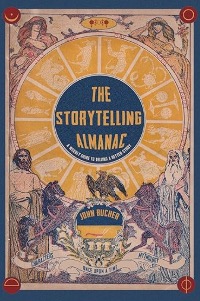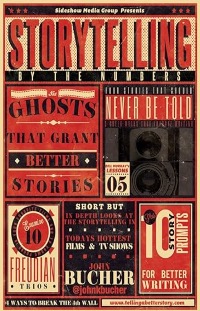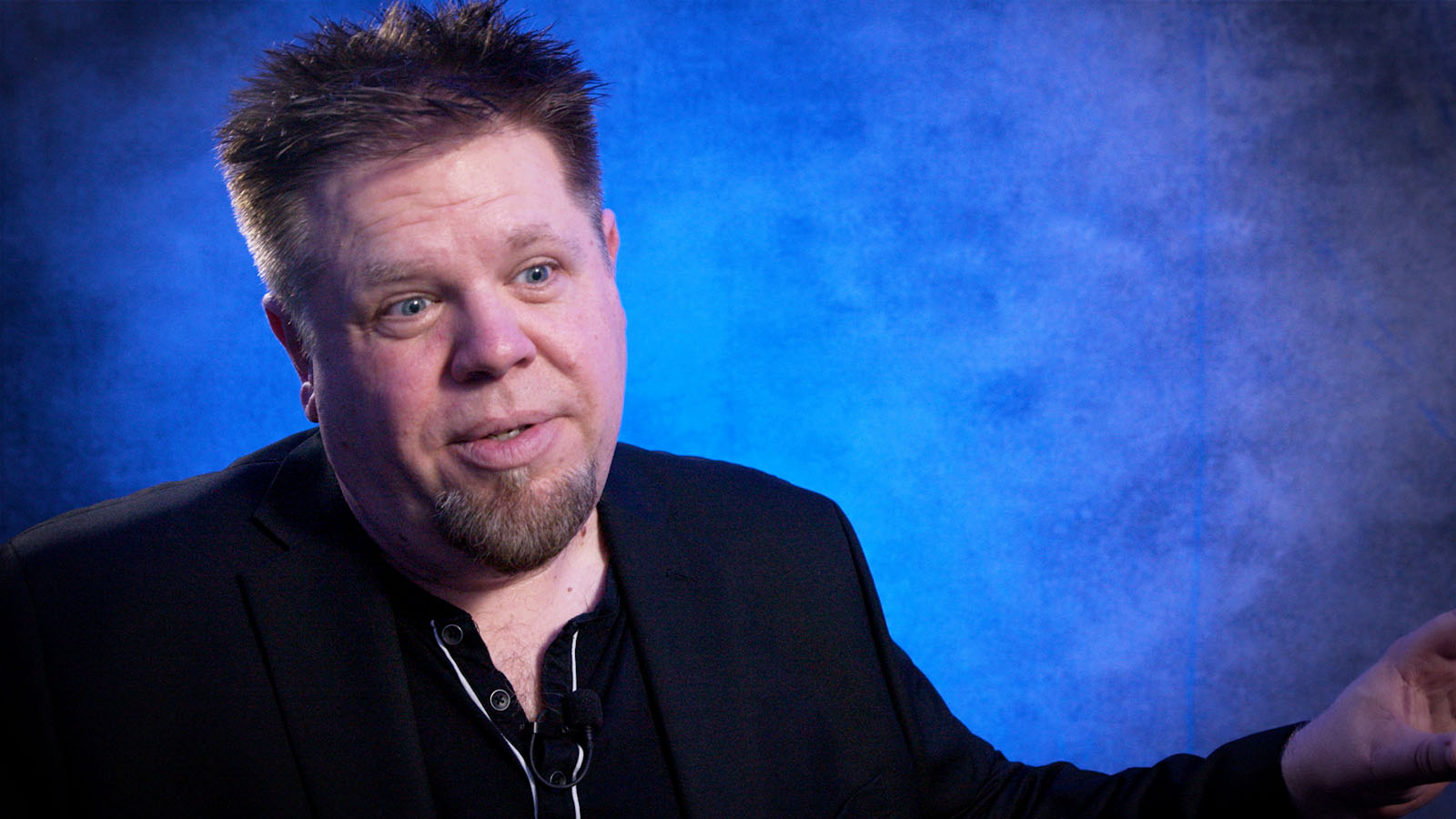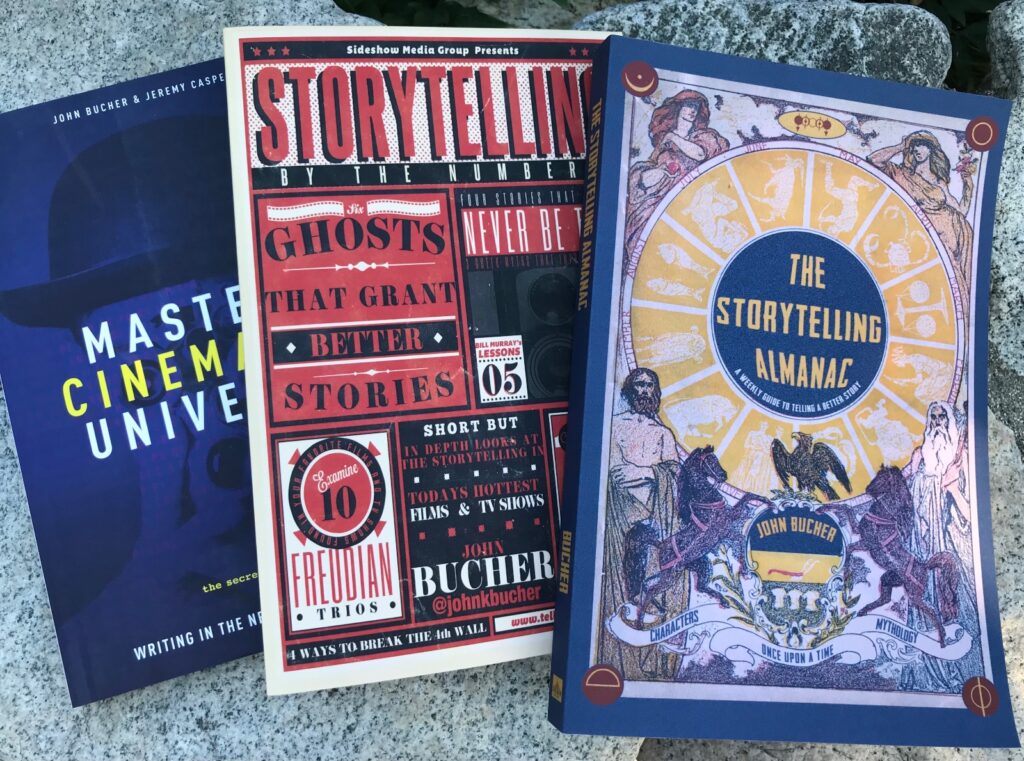[Watch the video interview on Youtube here]
Film Courage: Hero with a thousand faces, what does this mean?
John Bucher, Writer and Narrative Consultant: In one sense there is a story that the human being has been repeating over and over and over ever since we were able to articulate stories. At the center of that story is a heroic figure. We might call that heroic figure the hero. We might call that heroic figure the heroine. We might call that heroic figure a heroic team or a collective or ensemble but in a sense the hero with a thousand faces represents the many, many masks that that heroic presence has put on throughout history, throughout time and throughout culture amongst groups of people who have never met each other around the world. There’s something in the energy of that story that continues to rise up in human beings and I believe will continue to rise because it speaks to our own psychological development and movement as humans.
Film Courage: When you say masks are you talking about the fact that we all have many sides to us, even someone that’s heralded as a saint can also have sin in them as well?
John: Absolutely, there are masks that we put on in order to walk through different seasons of our life. Sometimes we must put on a mask that protects us from the elements in the hot sun. Other times there are masks that are aspirational, they speak to that which we would like to be. Sometimes when I meet new people I put on a mask in order to project who I want them to believe I am.
The same is true in storytelling in many ways. We create many characters that represent one type of human experience. I’ll give you just a bit of a breakdown of this, many times when we think about storytelling we forget that throughout history there have been a number of different types of stories that have served different purposes. There have been myths, fairy tales, parables. One of my favorite types of storytelling are fables. Fables have a unique application in the human experience in that when you and I hear a fable we often identify with a singular character because we live in a western culture where we tend to find one character that we most identify with.
Let’s take a fable like the tortoise and the hare, something a lot of people are familiar with that this turtle and this rabbit run a race and we listen to that story and say well I guess I need to be like the turtle slow and steady wins the race and don’t be like the hare who becomes lazy at the end however when someone like Aesop would have shared that story Aesop would have recognized that his audience would have heard that story and saw both of those characters as being inside of them that inside of me is both a tortoise and a hare and sometimes that energy is going to be what’s important to me but I also have this hare energy inside of me and it’s about finding the balance and the way to to to move with both of those energies so I think when we talk about any form of story or storytelling or mask that we might put on a character we of so can recognize that in a sense if I create a story filled with characters every one of those characters is an expression of me Carl Jung talked about when we dream all the characters in our dreams are us we are represented by each one of those characters so in a sense every story is an invitation to go deeper inside ourselves.
Film Courage: How do you define a hero?
John: Joseph Campbell talked about a hero being someone that was willing to sacrifice for something larger than themselves, an idea that’s larger than themselves, a principle that’s larger than oneself and I think that in many ways is how I define…(Watch the video interview on Youtube here).
About:
John Bucher is a mythologist, storyteller, and writer based out of Hollywood, California. He serves as Executive Director for the Joseph Campbell Foundation and is an author, podcaster, and speaker. He has worked with government and cultural leaders around the world as well as organizations such as HBO, DC Comics, The History Channel, A24 Films, Atlas Obscura, and The John Maxwell Leadership Foundation. He has served as a producer, consultant, and writer for numerous film, television, and Virtual Reality projects. He is the author of six books including the best-selling Storytelling for Virtual Reality, named by BookAuthority as one of the best storytelling books of all time. John has worked with New York Times Best Selling authors, YouTube influencers with followings of more than 2 million, Eisner winners, Emmy winners, Academy Award nominees, and cast members from Saturday Night Live. He holds a PhD in Mythology & Depth Psychology and has spoken on 6 continents about using the power of story and myth to reframe how individuals, organizations, cultures, and nations believe and behave.
MORE VIDEOS WITH JOHN BUCHER
CONNECT WITH JOHN BUCHER
Instagram.com/tellingabetterstory
Facebook.com/tellingabetterstory
Advertisement – contains affiliate links
(As an Amazon Associate I earn from qualifying purchases)

More affiliates:



Camera we use for interviews – https://buff.ly/3rWqrra
Sound we use for interviews – https://amzn.to/2tbFlM9
Other books on Amazon that Film Courage recommends – https://buff.ly/3o0oE5o




























